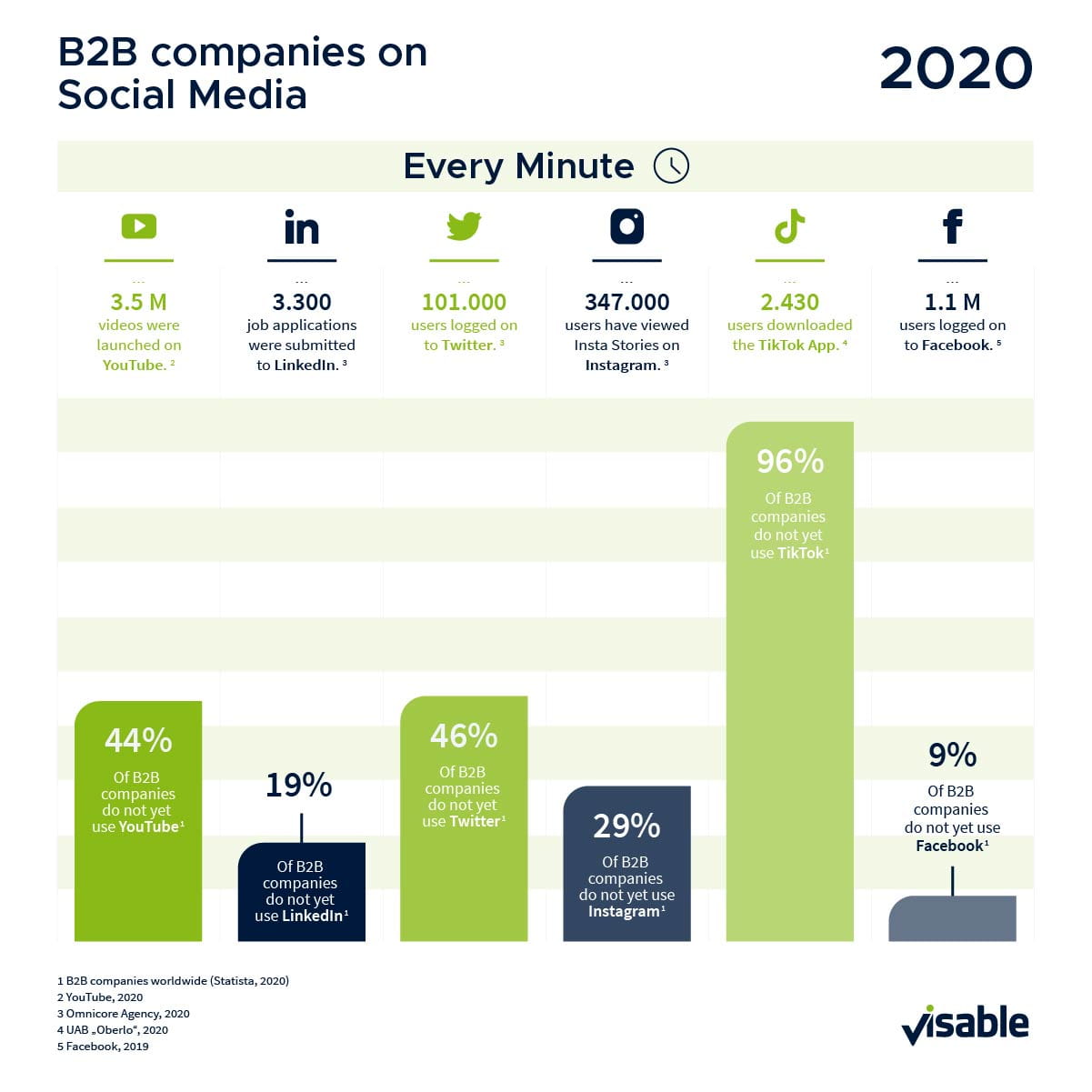A survey shows that social commerce is becoming a factor in the B2B segment – just like among private consumers. To leverage the full potential of this sales form in the professional area as well, companies have to face different challenges. What these are is revealed here.

Every third person has already purchased items via social media
E-commerce via social media is already a trend in the B2C area. For instance, in 2020, every third Internet user worldwide made at least one purchase via channels such as Facebook Shops, Instagram Shopping and Pinterest Shopping. This means: social media platforms are not just a source of information and inspiration alone, they also offer potential for e-commerce. A reason for this is, above all, the fact that customers don’t have to leave Facebook and similar when they want to shop online. The otherwise necessary switch from the social media channels to the sales portals of sellers is eliminated.
Survey: high potential for B2B business in social networks
Slowly but surely, e-commerce directly via social media is also entering the B2B business. This is shown by the B2B E-Commerce Konjunkturindex (B2Bkix) from IntelliShop and ECC Köln. The partners questioned around 130 participants – decision-makers and project managers from largely globally active B2B companies – between 26 April and 7 May 2021. The result: already 14 per cent of them are using social commerce.
But that’s not all. According to B2Bkix, a good 40 per cent of B2B companies today see e-commerce via social media as a relevant factor for sales. And about one-third of those questioned expect the significance of social commerce to increase further in the coming five years. A total of 75 per cent of participating B2B companies view the factor first and foremost as a supplementing marketing element for boosting customer loyalty and communication via social media.

E-commerce via social media: the challenges
Social commerce is offered above all by Facebook, Instagram and Pinterest. Those who want to take advantage of their B2B opportunities, however, must adjust to the basic characteristics of these sales channels. For instance, mainly the attention of impulse buyers is grabbed – compared to the B2C segment, business customers are less seldom impulse buyers in this respect. After all, purchases in the B2B segment are usually based on a longer period of research and decisions are rarely taken spontaneously.
This is why the requirements for e-commerce via social media are more complex. Before closing a deal, professional customers take a precise look at aspects such as:
- Product offering
- Delivery terms
- Quantity
- Logistics
- Price
Social commerce for business customers therefore follows different rules than for private consumers. An essential difference is the individual expectations and requirements of the B2B clientele. They set especially great store by tailored service regarding speed of availability, short purchasing processes and adapted supply chains.
The effort needed for this does not pay off (yet) for every industry or every item. While it, for instance, is less profitable and not very easy to handle for minor office supplies, it can be too big for the construction industry.
An advantage of e-commerce via social media, however, is the short path between product presentation and transaction. In future, the B2B segment can profit from this. After all, buyers are also active privately in social networks. What they have and already use as opportunities with social commerce, they will also expect this in the professional world, too, soon. Companies should therefore at least consider the idea today for their sales of tomorrow.
